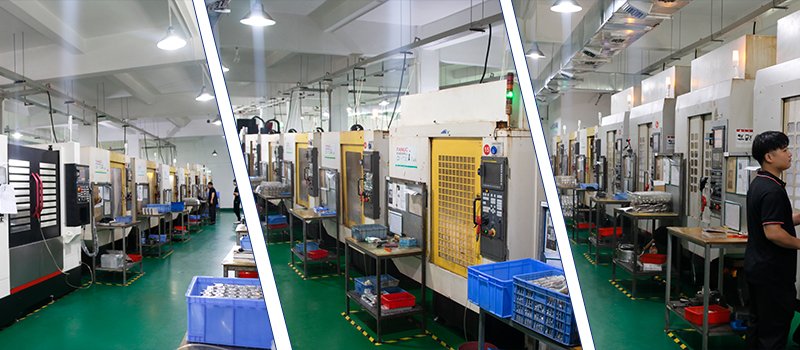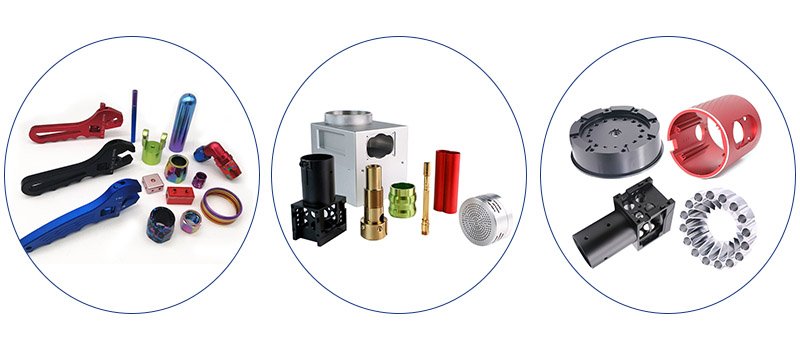If you’ve ever worked with a CNC machining manufacturer, you know that delivery times can make or break a project. Delays in receiving parts can disrupt production schedules, lead to costly downtime, or even jeopardize client relationships. At YL-Machining, we’ve tackled these challenges head-on, and I want to share the key factors that influence CNC machining delivery times. By understanding these, you can take proactive steps to keep your project on track.
Factor 1: Complexity of the Design
The first thing to consider is the design of your part. Intricate geometries, tight tolerances, and multi-surface features all affect machining time. The more complex the design, the more machining operations and setups are required.
How It Affects Delivery
- Multi-axis machining: Parts requiring 5-axis CNC machines or multiple setups take longer to complete.
- Tolerances: Achieving tight tolerances may require slower cutting speeds and additional quality checks.
- Small details: Micro-features or intricate patterns may require specialized tools or secondary processes, extending production time.
What You Can Do
Simplify your design if possible without compromising functionality. Collaborating with your manufacturer during the design phase can uncover ways to reduce machining complexity while maintaining part integrity.
Factor 2: Material Selection
Not all materials are equal when it comes to machinability. Some, like aluminum, are quick and easy to machine, while others, like titanium, are more time-consuming due to their hardness and heat resistance.
Material-Specific Challenges
- Hard metals: Materials like stainless steel and titanium generate more heat and wear down tools faster, requiring slower cutting speeds and frequent tool replacements.
- Soft metals: While materials like brass and aluminum are easier to machine, they may still require finishing to achieve desired aesthetics or durability.
- Exotic materials: Specialized plastics or composites might require unique tooling or handling, adding to lead times.
What You Can Do
Choose a material that balances performance with machinability. If you’re unsure, ask your CNC manufacturer for recommendations. For example, aluminum is often a reliable choice for quick turnaround times.
Factor 3: Volume of the Order
It’s no surprise that the size of your order affects delivery time. Producing a single prototype is far different from manufacturing hundreds or thousands of identical parts.
Volume-Based Timelines
- Low-volume orders: Prototypes or small runs typically have shorter lead times, as they require fewer resources and less setup time.
- High-volume orders: Large-scale production runs need more planning, machine allocation, and quality control, extending delivery times.
What You Can Do
If you’re on a tight timeline, break larger orders into smaller batches and prioritize the most critical parts for expedited delivery.
Factor 4: Machine Availability
Even the most advanced CNC machines can’t operate 24/7 without careful scheduling. Machine availability is a crucial yet often overlooked factor affecting lead times.
Common Bottlenecks
- Overbooked facilities: Popular manufacturers with high demand might have longer queues for machine time.
- Maintenance downtime: Machines require regular maintenance to ensure precision, which can temporarily limit capacity.
- Specialized equipment: Not every facility has the specific tools or machines required for unique projects, which could delay production.
What You Can Do
Plan ahead and communicate your timeline with the manufacturer as early as possible. At YL-Machining, we maintain a diverse range of CNC equipment and prioritize orders based on urgency and complexity.
Factor 5: Post-Processing Requirements
CNC machining doesn’t end with cutting raw material. Many parts require additional steps like surface finishing, coating, or assembly, which can add days to the delivery timeline.
Common Post-Processing Steps
- Anodizing: Enhances corrosion resistance and adds color to aluminum parts.
- Polishing: Required for aesthetic applications or smooth surfaces in brass parts.
- Heat treatment: Strengthens metals but takes additional time to complete.
- Assembly: If your part is one component of a larger product, assembly can significantly impact lead time.
What You Can Do
Ask your manufacturer what post-processing steps they can handle in-house. At YL-Machining, we provide integrated post-processing services, minimizing delays caused by outsourcing.
Factor 6: Quality Control
Delivering precision parts is non-negotiable in CNC machining. However, rigorous quality checks can add to delivery times.
Types of Quality Checks
- In-process inspections: Monitor parts during machining to ensure accuracy.
- Final inspections: Use tools like coordinate measuring machines (CMMs) to verify dimensions and tolerances.
- Functional tests: For critical components, manufacturers may conduct tests to ensure performance under specific conditions.
What You Can Do
Work with a manufacturer that integrates quality checks throughout the process rather than waiting until the end. This approach can catch issues early and reduce rework time.
Factor 7: Logistics and Shipping
Even after machining is complete, delivery time depends on logistics. Factors like packaging, customs clearance, and shipping speed can add days to your timeline.
Shipping Considerations
- Domestic vs. international: International shipping often involves customs delays.
- Priority options: Expedited shipping can reduce transit time but adds cost.
- Packaging: Ensuring parts are securely packaged may require additional time.
What You Can Do
Discuss shipping options with your manufacturer. At YL-Machining, we offer express delivery services for urgent projects and ensure all parts are securely packaged to avoid damage.
How YL-Machining Ensures On-Time Delivery
At YL-Machining, we understand the importance of timely delivery. Here’s how we streamline our processes to meet your deadlines:
- Detailed planning: We create a clear production schedule, breaking down each step to maximize efficiency.
- Advanced equipment: Our state-of-the-art CNC machines minimize setup and machining times.
- In-house services: From material sourcing to post-processing, we handle everything under one roof to avoid delays.
- Real-time updates: We keep you informed at every stage, so there are no surprises.
Final Thoughts
Timely delivery of CNC machined parts isn’t just about luck—it’s the result of careful planning, efficient processes, and clear communication. By understanding and addressing the factors above, you can significantly reduce lead times and ensure your project stays on schedule.
Ready to tackle your next project? At YL-Machining, we specialize in delivering high-quality CNC parts on time, every time. Contact us today to discuss your requirements and get a free quote!






